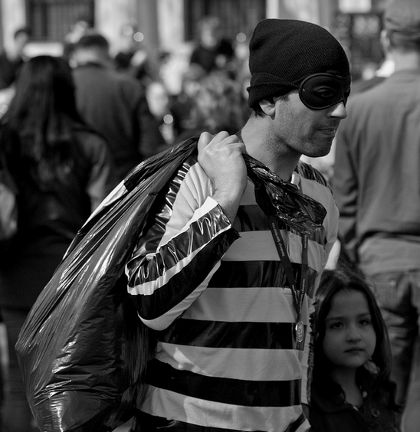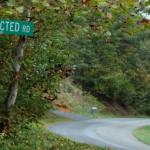Jonathan Dodd‘s latest column. Guest opinion articles do not necessarily reflect the views of the publication. Ed
I’ve always felt that we don’t give enough emphasis to the role of imagination in our lives.
I was brought up in an era when using one’s imagination was regarded as being somewhat dangerous and even subversive. And for me, the biggest criticism that recurred in every school report my parents ever received was that I often appeared to be ‘daydreaming’ or ‘looking out of the window’, or ‘not paying full attention’.
I wasn’t old enough or sassy enough to point out that all my marks and grades were actually good so this ‘daydreaming’ obviously wasn’t doing me any damage. There were three good reasons for not saying that. Firstly, it would have been ‘answering back’ and ‘cheek’, and might have resulted in a ‘clip round the ear’ (this was always virtual, because my parents never did that, but they could stop me watching TV). Secondly, because that was the age when nobody did answer back, and thirdly, because they would have patiently explained that my marks would have been even better had I concentrated ‘properly’. I wasn’t about to go down that road.
Covered in red ink
Many years later, when I was a primary school teacher, I always marked stories from the point of view of imagination and creativity. This was partly because I was once given an essay to write (we never wrote ‘stories’ in my school, only ‘essays’) about a perfect summer day, and I wrote about an early September day at the beach, right at the end of the summer holidays. It was chucked back at me covered in red ink, because ‘September’ was in ‘Autumn’, not in ‘Summer’. No mention of anything else that I wrote at all.

I’m not saying that my education was bad. In fact, I’m still very grateful for it. The emphasis on facts and figures, on clarity and precision, were very good training and gave me confidence in myself and my ability to learn and do well. I was lucky enough to have some spare brainpower to let my imagination loose in as well. I suppose I came away from all that with the belief that anyone can learn stuff with enough application and effort, but it’s much more difficult (and interesting) to make stuff up.
Only a visitor
That’s why I admire authors and film directors and actors and artists so much. They live in the world of the imagination, and I feel like I’m only a visitor. But I do my best.

I know that ‘creative’ people sometimes live stormy and difficult lives and we are saddened but not altogether surprised to hear of hugely talented people dying far too young. I think there’s also a case to be made about the effects of having no imagination, or of having imagination crushed or simply not valued.
Stop digging!
Like almost everyone, I have had difficult periods in my life, and I have occasionally stumbled down into those lowlands of hopelessness. I remember feeling like I was stuck in a tunnel. I’ve seen it in other people too. The thing is that at these times we concentrate on one idea only, one story, and we forget that there are other possible ways to look at things. It’s a sort of tunnel-vision of the imagination. Whatever’s happening out there, outside the tunnel, no longer seems real.

Climbing out of the tunnel is difficult. Someone once said to me – “When you find yourself at the bottom of a hole – stop digging!” I replied – “But that’s the hardest thing to do!” After that I always thought of depression as a world without imagination.
Been there, ate the tee shirt
I always wondered why some people find it hard to break the law and others couldn’t care less. I used to think that it was all down to social conditioning and not daring to disobey.
I was once burgled, and the sense of desolation and violation was so intense I wondered how anyone could inflict that on someone else. How I felt was far worse than the loss of precious or valuable things. The answer was that the thief either couldn’t imagine being burgled themselves, or had been burgled so often it no longer hurt, or never owned anything they valued. I suspect they either didn’t have any imagination or chose to ignore it.

Of course it’s also possible to let your imagination run away with you. This occurs when you lose sight of the well-defined line between imagination and reality. Phobias are where the imagined worst-case scenario inappropriately overlays the actual realistic likelihood. It’s easy to say that the spider you see in the corner can only hurt a fly, unless your emotions are being overwhelmed by some other message. Been there, ate the tee shirt. Now I cure phobias, but that’s another story.
The spicing on the cake
So I advocate a liberal dosage of imagination of all kinds, served up with solid sensible portions of reality for a balanced life of the mind. That’s the spicing on the cake. I’d like to introduce imagination-training as a core subject in schools.

Of course, that reality thing can be a bit tricky too. But that’ll have to wait for another time.
If you have been, thank you for reading this.
Image: Sh1019 under CC BY 2.0
Image: Amboo213 under CC BY 2.0
Image: Druidhills under CC BY 2.0
Image: Olesachem at The Manhattan Well Diggers under CC BY 2.0
Image: f4niko under CC BY 2.0
Image: Chris Isherwood under CC BY 2.0





